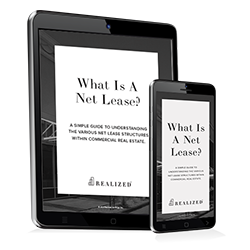What Are the Holding Requirements for Opportunity Zone Investments?

As part of the 2017 Tax Cuts and Jobs Act (TCJA), an Opportunity Zone is a designation and an investment program that allows for certain investments in lower-income areas to have tax advantages. There are over 8,700 designated Qualified Opportunity Zones (QOZ) in all 50 states, the District of Columbia, and five U.S. territories. The goal of the program was to create jobs and stimulate economic development by incentivizing investors to reinvest capital gains in real estate property or businesses located in economically-distressed communities.
What is a Real Estate Syndication?

When several investors partner together to buy a real estate investment, it is called real estate syndication. With the prevalence of the internet, some people also think of it as crowdfunding for real estate.
What is a 403B Tax Shelter Annuity and How Does it Work?

Many investment vehicles are available for employee retirement. Individual Retirement Accounts (IRAs) and 401(k)s could be considered among the most visible in this category. Also in this category is the 403(b), also known as a tax-sheltered annuity, or simply a TSA. As its description implies, this particular investment is a form of a tax shelter that has, in the past, been compared to other retirement investments. There are, however, various differences between the TSA and IRA.
Tenant-in-Common Rights and Liabilities

Tenant-in-common (TIC) ownership structures are still broadly used as a real estate investment structure. An important component of TICs is that every co-owner needs to get along so that decisions can be made in a timely manner. This generally works best with a small group of people who know each other and have an understanding of the use of the property and what any goals for the property might be.
Opportunity Zone Regulations - What You Need to Know

In November 2020, we offered an overview of the IRS’ Notice 2020-39. That information explained coronavirus pandemic-driven “resets” when it came to Qualified Opportunity Zone (QOZ) deadlines. For example, the 180-day reinvestment deadline clock struck “midnight” on December 31, 2020 for reinvesting recognized capital gains occurring between April 1, 2020 and December 31, 2020 into in a Qualified Opportunity Fund.
What is Portfolio Diversification and Why is It Important?

Imagine buying several similar property types in the same area of town. These properties make up your entire portfolio. At this point, your portfolio is highly dependent on the outcome of properties in this one area of town. That’s another way of saying there’s increased portfolio risk due to the concentration of properties in one area.
What is a Qualified Retirement Plan?

While many corporations have eliminated traditional pensions, most continue to offer employees the opportunity to save for retirement through defined-contribution plans like 401(k) and 403(b) plans. Those numerical designations refer to the Internal Revenue Code sections that authorize the plans and have become shorthand for employee retirement savings vehicles. The question of “qualified” versus “non-qualified” refers to compliance with the 1974 Employee Retirement Income Security Act (ERISA).
What Are Good Tax Shelters?

Sheltering income from taxes, also known as tax avoidance, is a legitimate and worthy pursuit. It is distinguished from tax evasion, which is the deliberate underpayment of or failure to pay taxes. There are several excellent ways to shelter income from taxes, including making contributions to certain retirement accounts, using pre-tax dollars to pay for health insurance and medical care, enrolling in a college savings account, and owning a business.
How to Start a 702(j) Retirement Plan

A 702(j) plan is actually not a retirement plan at all. It is a life insurance policy. However, it is marketed to certain clientele as a retirement plan by some insurance agents.
What is the Tenant Required to Pay in a Triple Net Lease?

In commercial leasing, there are various names for lease types, and some are used interchangeably at times, so it is always advisable to rely on the lease terms for guidance rather than the name someone has used in reference to a lease. However, a Triple Net or NNN lease commonly assigns most costs of operating a building to the tenant rather than to the owner.


